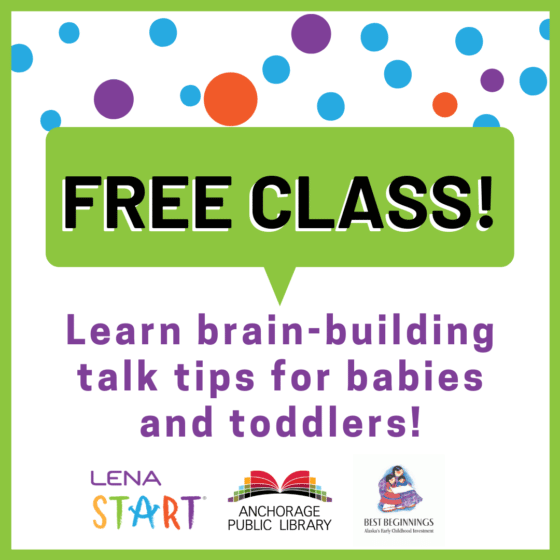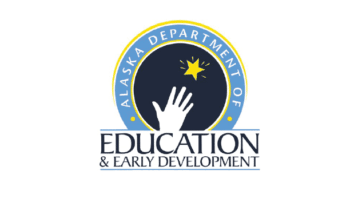People say talk is cheap, but for babies, talk is priceless. Talking with babies has been shown to have an amazing impact on the growth of their brains and development of language, key to their future success in school and in life. And, unlike products that are advertised to parents as critical to making their babies smart, talking is free!

So what can parents and other caring adults in a baby’s life do? One of the organizations working on this, the LENA Foundation, has an easy way to remember what to do that is called “words and turns.” “Words” refers to the quantity of words a child is exposed to, and “turns” means the interactions between adult and baby that can also be described as “serve-and-return” activities – baby begins to babble, adult talks back, baby vocalizes again.
Anchorage families with children ages 0-3 have a unique opportunity this year to participate in a free program offered by LENA to help them learn how to increase conversation with their children during the first few years of life. Even families who know talking to their young child is important don’t always know how much they’re talking or how to do it. Interested families can sign up, or learn more, here.
 Jill Gilkerson, LENA’s director of child-language research, said, “Conversational turns are vastly more important than the number of words a child is exposed to.” She and her colleagues found parents of children who scored in the top 10 percent on preschool language tests had conversations with their children that involved 18 more turns taken per hour than parents of children scoring in the bottom 80 percent.
Jill Gilkerson, LENA’s director of child-language research, said, “Conversational turns are vastly more important than the number of words a child is exposed to.” She and her colleagues found parents of children who scored in the top 10 percent on preschool language tests had conversations with their children that involved 18 more turns taken per hour than parents of children scoring in the bottom 80 percent.
It’s obvious that both words and turns are important in helping babies and toddlers develop language. What role might shared book reading play? Stephen F. Warren, PhD, says, “Reading together with a young child in a way that promotes interaction and turn-taking is among the most important routines that can be built into a child’s day. It should be a high priority every day.”
The best time for families to develop routines like this is shortly after the birth of a new baby. In fact, in June 2014, the American Academy of Pediatrics released a statement recommending for the first time that parents should read with their children beginning in infancy. The statement also says that “reading aloud with young children has been found to increase the richness of the vocabulary to which they are exposed as well as the complexity of syntax. In addition, books and early conversations and play around books and reading stimulate increased interaction between the adult and child. These interactions build nurturing relationships that are critical for the child’s cognitive, language, and social-emotional development.”
Research and common sense agree: it’s words and turns. Parents who talk with their babies and young children, whose conversation includes lots of “serve-and-return” moments, and who read with their children from the time they’re born, are promoting crucial brain development and setting the stage for their children’s success in school, and in life.

